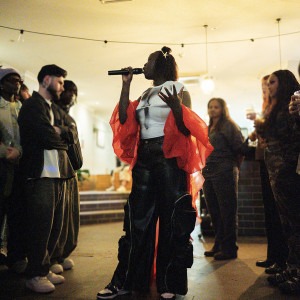When Eurovision first premiered in 1956, Belgium, France, West Germany, Italy, Luxembourg, the Netherlands and Switzerland were the only competitors. For many years, strictly European countries were allowed to join in the competition. So when and how did Australia get to join in? Find out the history of Australia's involvement with this famous musical competition!

A Brief History of Eurovision
Eurovision was originally devised as a tool by the European Broadcasting Union (EBU) as a way to meet two main goals:
- Experiment for the first time in transnational television broadcasting
- Promote unity among European nations in a post-WWII world
The idea for a song competition came from the fact that local singing contests were already quite popular, so the producers were sure they would have a large audience interested in the event. EBU based this competition's structure and voting system on already-existing song competitions, particularly Sanremo's music festival.
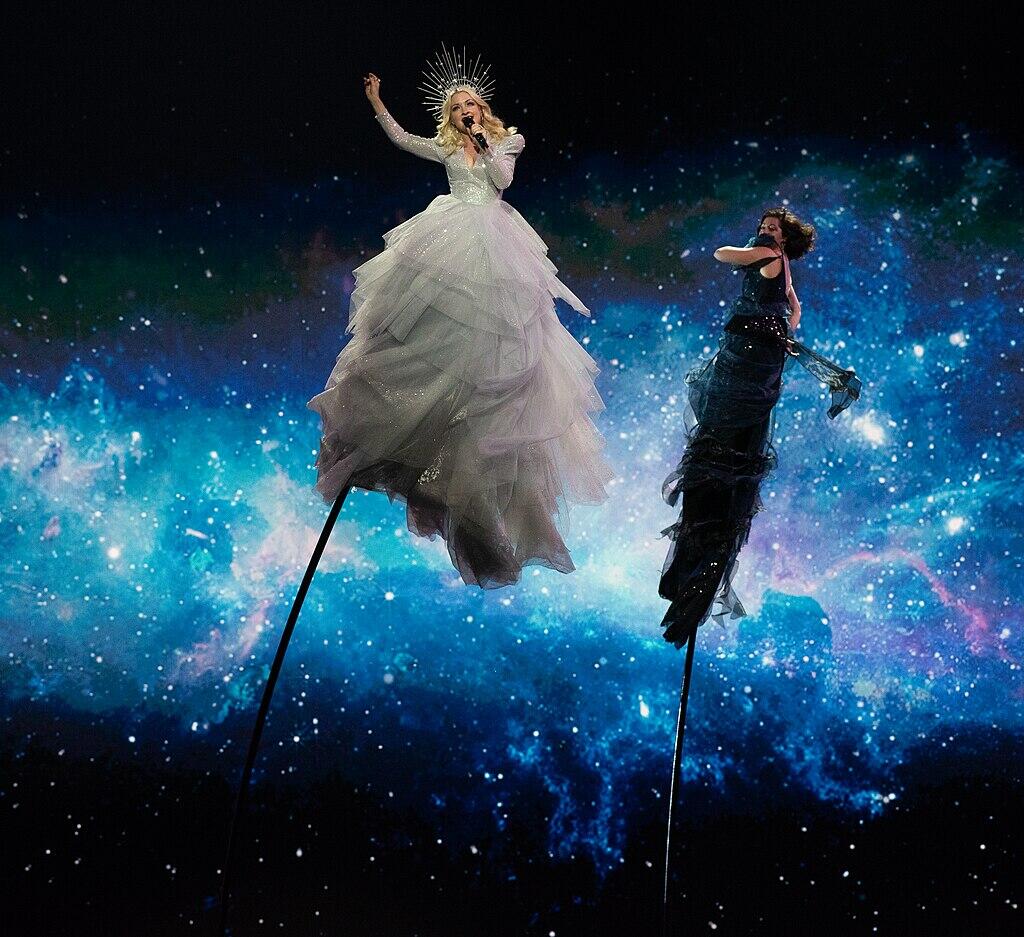
The competition took off in popularity and has been held every single year (except 2020, for obvious reasons) since its debut in 1956. It has become a prestigious honour for nations to participate in the competition, with talented performers getting to showcase their abilities on a world stage.
Over the years, more and more countries joined in the competition. At times, some countries were cut from entering due to time constraints; they simply couldn't handle 30+ countries participating at once, especially before the second night was introduced!
So how does Australia figure into all of this?
Rules for Entry Into Eurovision
When Eurovision first began, the only countries eligible for entry were those with an EBU broadcasting licence. The name "Eurovision" gives the impression that the contest was devised so as to only ever allow European countries into the mix, but that's not what the name means.
"Eurovision" first referred to the simple event of a BBC programme being broadcast on Dutch television, a novel event at the time (1951). The name was later co-opted for the name of the event we all know and love: the Eurovision Singing Contest (ESC).
Eurovision had 163 million viewers worldwide for the 2024 event. Votes were received from 156 countries.
All this is to say, being a European country was never a requirement for participation.
This explains why so many non-European nations participate in this competition. An avid contest watcher across its 69-year history will have noted Israeli and Moroccan acts gracing the stage. Other North African and West Asian countries have participation rights, too.
Feeling inspired? Learn how to harness your vocal talents with singing lessons Sydney here on Superprof!
The Rule for Countries That Want to Join Eurovision
The only rule for joining Eurovision is that the country must have a national public broadcaster that is an Active Member of the European Broadcasting Union (EBU). As far as organising the actual broadcast, selecting juries and performers, and all the other logistics, that's another story.
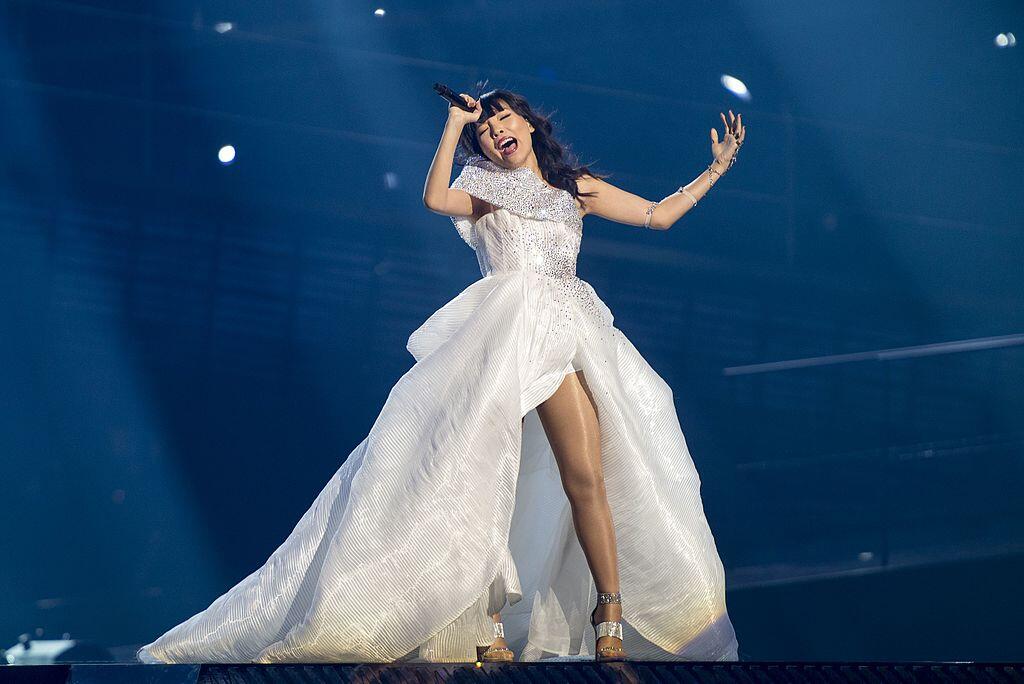
Eurovision Countries Not In Europe
Why are non European countries in Eurovision, and which ones have participated?
Non-European countries that have a broadcasting company with an EBU license can join the competition.
To achieve this license, the country must be located within the European Broadcasting Area (EBA), which, despite the name, is not limited to only Europe. Indeed, its reach extends to parts of North Africa, Saudi Arabia, and West Asia.
So how can countries like Lebanon and Tunisia (and Australia) qualify for entry? They have broadcasting companies that are associate members of the EBU. We'll dive into Australia's particular history in the next section.
Here is a list of all the non-European countries that have participated in Eurovision. There are many others that are or that have been eligible, but that haven't participated.
| Country | Region | First Year of Eurovision |
|---|---|---|
| Israel | Middle East | 1973 |
| Morocco | North Africa | 1980 |
| Cyprus | Middle East | 1981 |
| Armenia | Middle East/West Asia | 2006 |
| Australia | Oceania | 2015 |

How Did Australia Get into Eurovision?
Australians have long been Eurovision fans, long before we were able to join in. Our passion for it took root in 1983, when our Special Broadcasting Service (SBS) aired the contest for the first time. We just can't see enough of this performance event! By then, the list of participating countries had grown to 20. That's nearly three times the number that competed in the first-ever line-up (7).
In those early broadcast days, we had to content ourselves with commentary from the British Broadcasting Company (BBC). However, starting in 2001, SBS engaged various Australian media personalities to narrate the contest. Sam Pang and Julia Zemiro enjoyed the longest tenure in that role.
Julia became the face of Australians 'begging' to join the contest. SBS released several clips of her entreating the EBU to bend the admission rules. As you'll see in the video clip below, she wasn't entirely successful; However, her efforts (combined with many others behind the scenes) led to Australia's eventual participation.
The Danish Broadcasting Company (DR) gave Australia its first Eurovision big break in 2014. We still weren't a part of the competition, but our Jessica Mauboy wowed the audience with her Sea of Flags during the show's intermission segment. Despite the adulation she received, we'd have to wait one more cycle for permission to compete.
Maybe you can have a shot at the big stage when you learn with an amazing teacher for singing lessons Perth on Superprof!
The year 2015 brought Eurovision's 60th return.
The problem: Australia still didn't have a European broadcasting licence - the only requirement for contest participation.
The solution: Austria hosted the competition that year. That country's ORF broadcasting station invited Australia as a goodwill gesture, albeit under slightly modified rules.
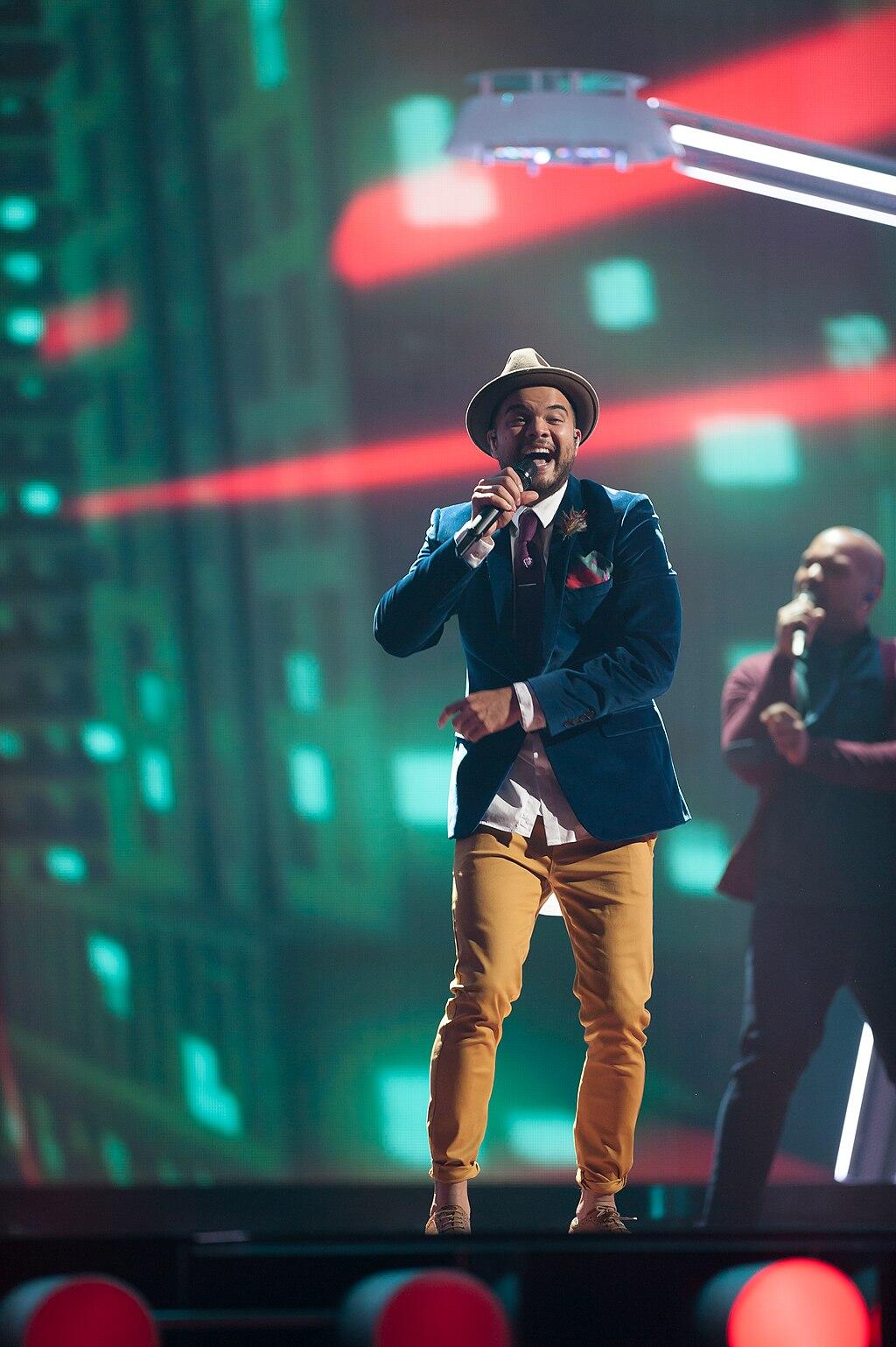
Our representative (Guy Sebastian, who else!) did not enter the semi-final round.
Instead, they would perform in the competition's finals.
But then, the question arose of what would happen should Australia win.
You might know that the nation whose representative wins earns hosting rights for the next contest.
Australia promised not to take the show Down Under. In return for this guest appearance - and a possible win, SBS guaranteed a partnership with a European broadcaster. The EBU paired our broadcaster with Norddeutsche Rundfunk (NDR) for that eventuality, with the BBC serving as a backup. Now, with all the bases covered, the show, and our singing star, could go on.
Was Guy Sebastien's Tonight Again Eurovision's most popular song that year? It certainly was for us. And it must have made some impact on the greater Eurovision crowd because we were invited back the next year - not as guests, but as contestants.
Australia's first appearance as a contestant in Eurovision was in 2015. Australia has participated in every competition since!
We'll detail every Australian Eurovision act in the next section. For now, we need to marvel over how one guest appearance morphed into a yearly return engagement.
Since that beginning, without fail, an Australian has taken the Eurovision stage - save for the contest's pandemic shutdown in 2020. We're extended this privilege each year thanks to the host nation inviting us back. Every year, our talent has placed high in the rankings, except in 2018, when Jessica Mauboy's We Got Love was shut out of the Top Ten.
For the next year's contest, SBS launched Australia Decides, rather than selecting our country's Eurovision representative on their own.
This nationwide contest was an immediate hit, both at home and abroad. It mirrored how European nations select their representatives. And it gives us a bit of our own Eurovision on home turf. Now, let's talk about who sings in our name.
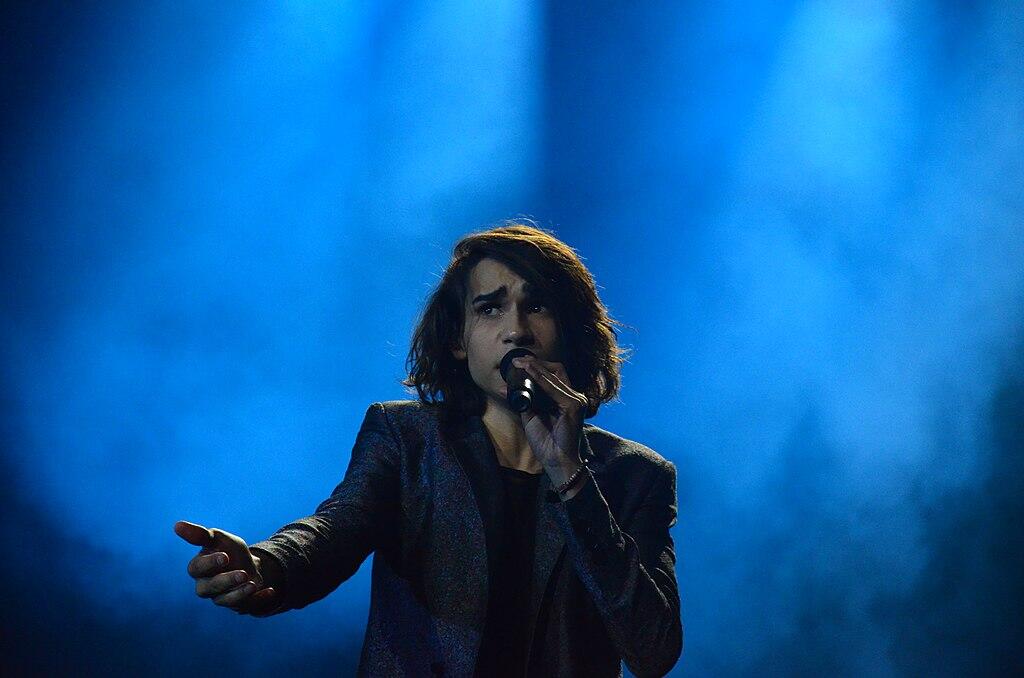
Who Have Been the Australian Eurovision Contestants?
This writer confesses it's been hard to not gush about all the Australian talent that has graced the Eurovision stage, so far. Still, we couldn't help but leak a few names. Our Eurovision debut singer, Jessica Mauboy, who had a return engagement a few years later. And Guy Sebastien, who arguably put Australia on Eurovision's map.
Dami Im merits special mention. Her vocal stylings at the 2016 contest brought us the closest to a win we've been - ever, and since. Her Sound of Silence YouTube video comments insist she was the true winner that year. By a strange twist, the prize went to Ukraine.
Isaiah Firebrace's Don't Come Easy could hardly be called a comedown. He was 2017's Australian representative. His performance was all the more remarkable for having twice forgotten song lyrics during his X-Factor showing. He placed ninth in the final Eurovision contest.
Voting for Eurovision contest winners is a convoluted affair. The first time we, the Australian audience, got to pick our representative, Zero Gravity won. Kate Miller-Heidke took her angelic vocals and stunning visuals to Tel Aviv. She topped the semi-finals and came in ninth in the final contest.
In 2020, Montaigne should have travelled to Rotterdam to perform Don't Break Me. An infernal virus broke the world that year, leaving the Eurovision stage dark and empty. Our Australia Decides top pick made her Eurovision appearance a year later. Then, misfortune struck again.
Sadly, no. Australia has never won the competition.
What happens if Australia wins Eurovision? Usually, the winning country hosts Eurovision the following year. But, if Australia wins, we'll need to nominate a European country to host in our stead; it's simply too difficult and expensive to consider holding the competition Down Under.
Her offering, Technicolour, didn't make the anticipated splash. It was the first time since Australian performers' contest debut that we were shut out of the finals.
However, it wasn't the end of Australia in Eurovision. Host countries keep inviting our top talent, and we gladly repair to whichever stage welcomes us. This table summarises our Eurovision appearances, performances, and the songs we have gifted the world.
| Year | Artist/Act | Song | Result |
|---|---|---|---|
| 2015 | Guy Sebastien | Tonight Again | 5th place (finals) |
| 2016 | Dami Im | Sound of Silence | won second semi-final 2nd place (finals) |
| 2017 | Isaiah Firebrace | Don't Come Easy | 9th place (finals) |
| 2018 | Jessica Mauboy | We Got Love | 20th place (finals) |
| 2019 | Kate Miller-Heidke | Zero Gravity | won first semi-final 9th place (finals) |
| 2020 | Montaigne | Don't Break Me | Canceled (COVID) |
| 2021 | Montaigne | Techicolour | 14th (first semi-final) |
| 2022 | Sheldon Riley | Not the Same | 2nd place second semi-final 15th (finals) |
| 2023 | Voyager | Promise | 9th place (finals) |
| 2024 | Electric Fields | One Milkali (One Blood) | 11th (first semi-final) |
| 2025 | Go-Jo | Milkshake Man | We'll see! |
Who Is Representing Australia Eurovision This Year?
The Aussie with the honour of performing in Eurovision this year is Go-Jo, who will be performing Milkshake Man. Go-Jo is the 9th most-streamed Australian artist in the world, having gained rapid popularity internationally on social media.
He will join the other contestants in Basel, Switzerland, at the St. Jakobshalle arena. Last year, Swiss artist Nemo won the contest with their song The Code.
This will be the third time Switzerland has hosted the event, with the previous two times being in 1956 at the inaugural show and 1989.
How to Watch Eurovision in Australia
Mark your calendars! Eurovision 2025 will take place in May, specifically:
- Tuesday 13 May at 21:00 CEST (Wednesday 14 May at 5:00 AEST): First Semi-Final
- Thursday 15 May 21:00 CEST (Friday 15 May at 5:00 AEST): Second Semi-Final
- Saturday 17 May 21:00 CEST (Sunday 18 May at 5:00 AEST): Grand Final
The programme will be televised in Australia by SBS. Australia will be competing in the second semi-final on Thursday/Friday.
Yes! Australia can win Eurovision in just the same way as any other participating country. The only difference is that, if Australia wins, a European country will need to be nominated to host the competition the next year instead.
Getting excited for Eurovision? The date is rapidly approaching, so be sure to stock up on supplies and arrange your viewing parties! Soon enough, the competition will be airing for the whole world to enjoy!
Want to learn how to sing like a pro? Find singing lessons near you on Superprof!
Summarise with AI:







